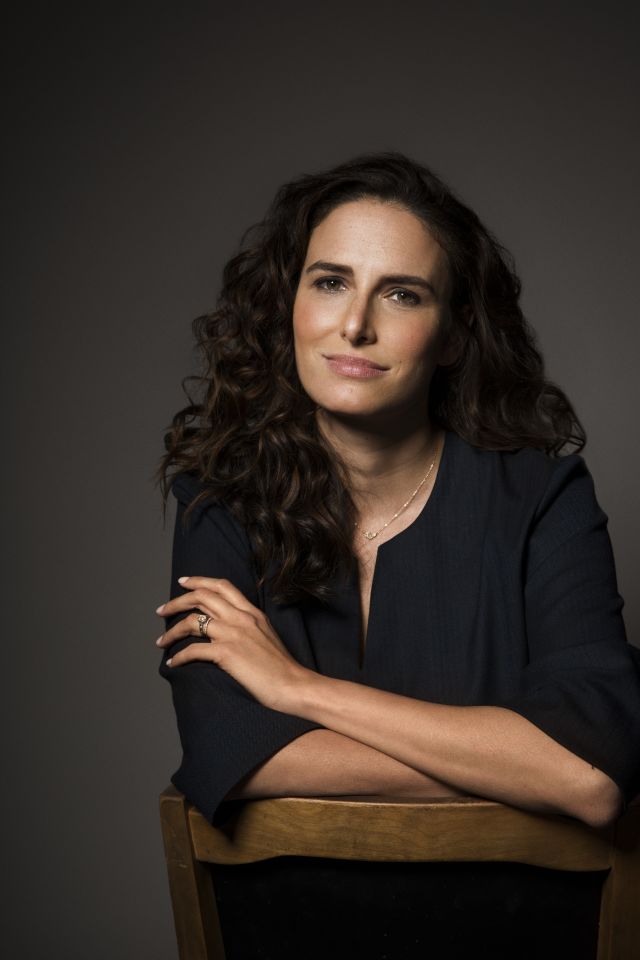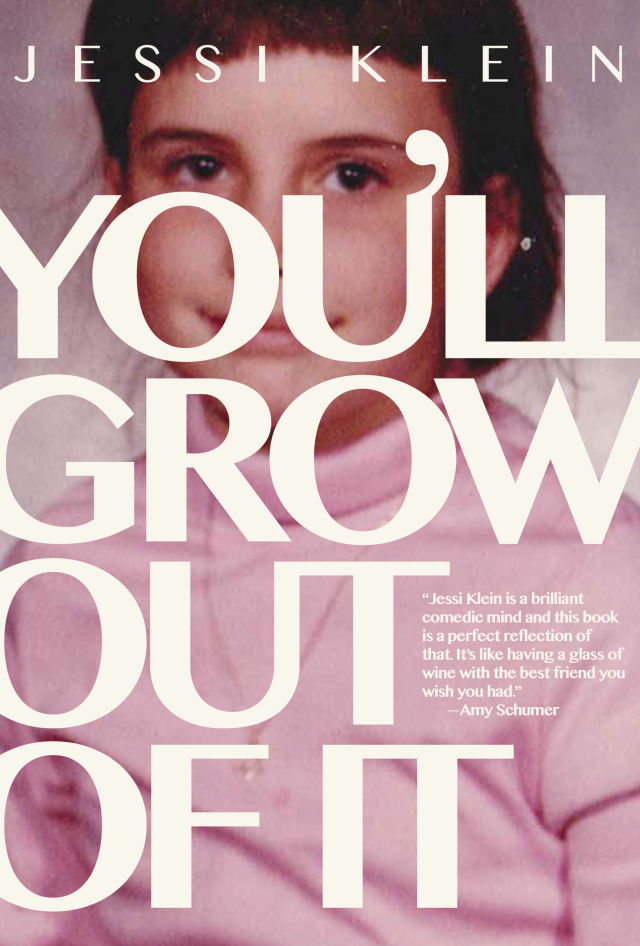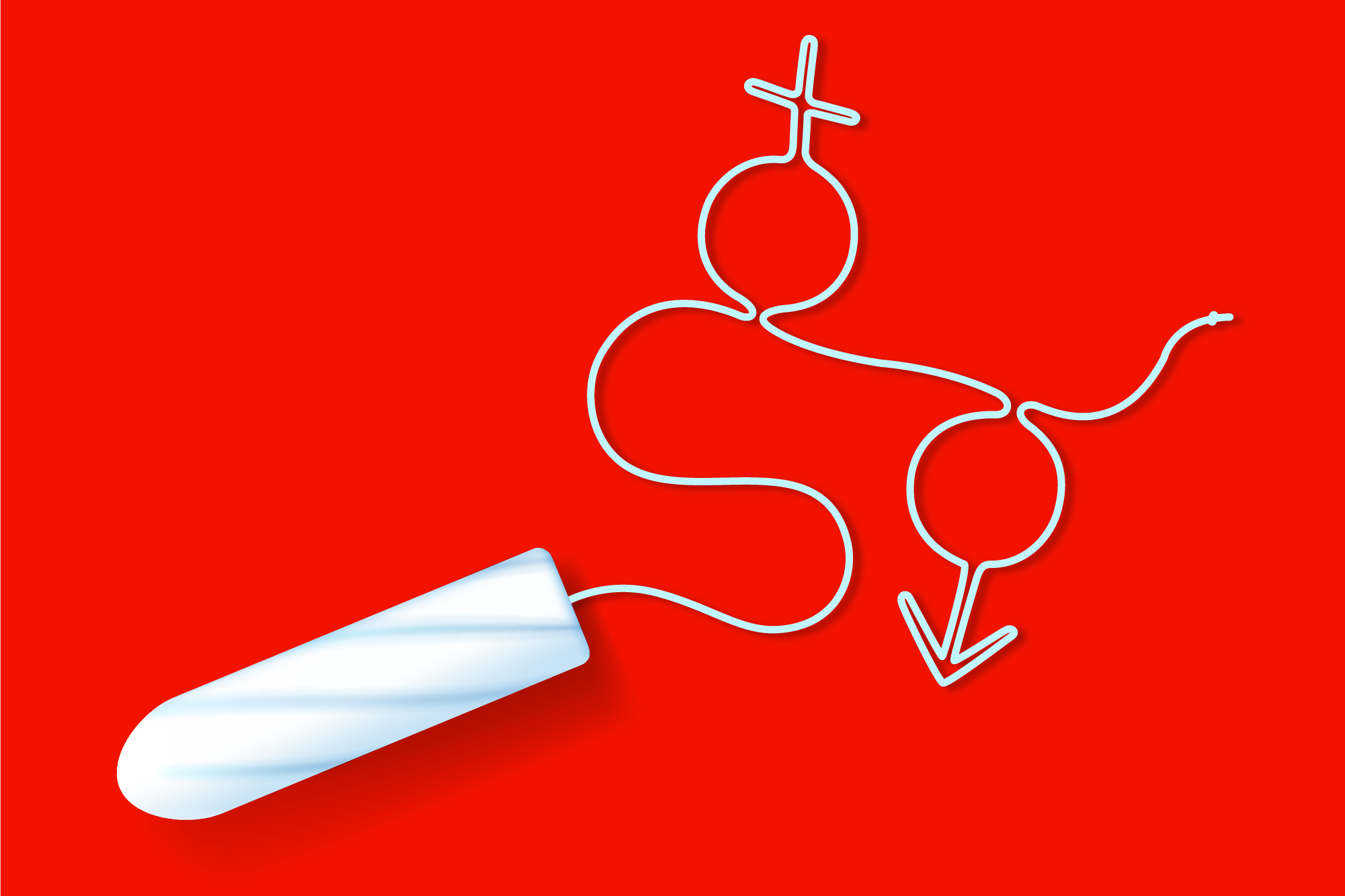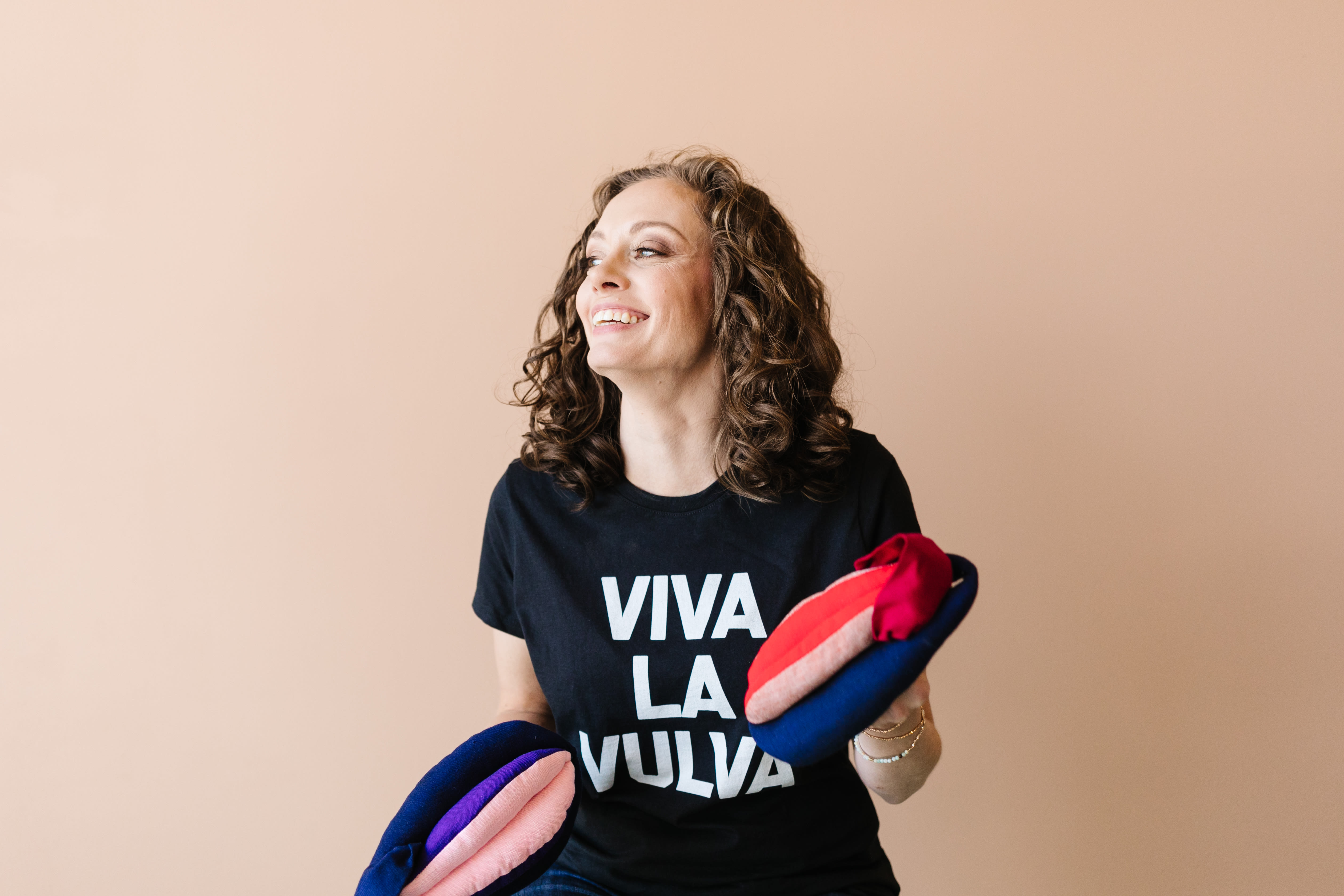Jessi Klein Explains Why You Might Not Grow Out of It

Image: Robyn Von Swank
“Most of us don’t see ourselves clearly,” Jessi Klein says over the phone.
Despite a literal wildfire raging just outside the car she’s sitting in, Klein has a gift for clarity of thought—though that might be expected from someone who's spent more than a decade doing stand-up and writing for television, both of which she says are “inherently trying to compress” ideas into bite-sized morsels.
She continues, “Part of me thinks, pshh, man, cultural norms are so ridiculous, and the other part of me sees this enormous machine generating these norms, and I would be lying if I said I wasn’t vulnerable to them.”
This kind of frankness about her complicated relationship with cultural norms closely mirrors Klein's work as a seasoned stand-up comedian and head writer of Inside Amy Schumer. It’s the kind of humor seen in Klein's sharpest Amy Schumer skits, such as “Last Fuckable Day”—a send-up of Hollywood’s very glaring problem with women of a certain age.
And it’s the kind of humor and critical eye that occasionally shows itself in her new book, You’ll Grow Out Of It. It’s a collection of essays, varying in critical rigor, ranging from never quite growing out of her tomboyishness and envying “effortlessly feminine” women—or what she calls poodles, in a part of the book that divides women into either the “poodle” or “wolf” category—to dealing with "fuckability" as she ages.
Klein's book just hit the New York Times bestseller list. We caught up with her to talk feminism and femininity.
For those who don’t know you: give me the CliffsNotes version of who you are.
I am the head writer and one of the executive producers of Inside Amy Schumer. I do stand-up. I love dogs. That covers it, I think.
You’re a seasoned stand-up and television writer. Why write a book?
It wasn’t so much driven by a desire to switch mediums as it was I was unemployed. We had just shot the first season of Inside Amy Schumer but it hadn’t aired, so we didn’t know how it would do. My manager told me that he had a book agent that I should meet, and I had coffee with the agent and gave him a few things I had written, and he said, “I think you should write a book.” I had never really thought about it before, but I had literally nothing else going on. It’s a very unglamorous story.
Is there more room to think and breathe in a book than there is in, say, stand-up or sketch?
For sure. TV is inherently always trying to compress. Especially in sketch writing, brevity is the soul of the entire process. Book writing, it feels like you can go on all available tangents. It was an opportunity to go on tangents and not have to be ha-ha funny every single moment. I wanted to be funny but I also wanted to be able to do other things.
Who would you consider your audience for this book?
Ooh, I mean, I’ll take whoever wants to read it… I wrote it kind of hoping that it would be relatable to anybody. I would imagine—a lot of it is about the feeling of being an outsider while trying to be really feminine—so I’m sure there are things that women might relate to more, but I’ve already had some guys write to me that they were reading and enjoying it, which is super gratifying. I definitely don’t think of it as a female-only book.
Let's talk about femininity. As a child and a tomboy, you were indifferent to femininity, and it almost seems like you were unaware that it was even a thing, but over the years your relationship to it became complicated: you envy “poodles”—effortlessly feminine women. The title of the book is You’ll Grow Out Of It—the “it” being tomboyishness or, in the duality you put forth, “wolfishness.” Do you think it’s something you should have grown out of?
I think I’ve come to terms with my wolfishness. I mean, I’ve lived with it for so long. I’ve embraced a few stereotypical feminine things—it’s still a struggle, though. Like, in the publicity for this book, I’m getting dressed up to look nice, and it makes me want to cry.
How do you define femininity?
Femininity in my heart is a million things. It’s everything that women are. But I suppose in the book, what I’m referring to are American cultural norms. You know, it starts with Barbie and radiates only slightly out from there.

Image: Jessi Klein
But you talk about manicures and pedicures being something you, as a “wolf,” don’t understand, yet those are manufactured things. And the “effortlessly feminine” are labelled “poodles”—which are genetically engineered dogs...
Ha, I mean, it’s not a perfect metaphor.
You were the brains behind “Last Fuckable Day.” Tell us how that came about.
We were just goofing around in the writers’ room, looking at, I don’t know, like Us Weekly, and we were tooling around with the idea of when these beautiful women go from the covers of these huge magazines to the down-market magazines. At what point does the machine decide that it’s time to transfer over? It’s kind of like Malcolm Gladwell—there’s a tipping point, and I do think most women feel a little bit of that [pressure] at least.
It seems that fuckability-as-virtue comes up a few times in this book, especially in The Bachelor chapter. Where “Last Fuckable Day” seems to jab at the idea of fuckability as the be-all and end-all of being a woman, in your book you wrote, “I felt a pang realizing that all of the things I may have unintentionally radiated my whole life, ‘good fuck’ was definitely not one of them.” Why does this hurt?
Part of me thinks, pshh, man, cultural norms are so ridiculous, and the other part of me sees this enormous machine generating these norms, and I would be lying if I said I wasn’t vulnerable to them. I think there’s a central part of you that wants to be desired—I think that’s just a woman thing.
Don’t you think that’s more of a human thing?
Yes, but more so for women. At least in America—how much of that [value] is tied to how they look.
Do you think things are getting better?
Like, in life or in television?
Both.
The dial is moving a little bit. And I mean—like bold, underline “a little bit.” Definitely in television, less so in movies. In life? I think in life it’s been the most elastic all along. You know, men like different kinds of women, of all shapes and sizes— and that’s just never been seen. You never really see life reflected back in the media, and that’s created a cycle. I think TV has had a little more breathing room than movies—movies still seem horrible.
Do you consider yourself a feminist?
I very much consider myself a feminist. I really can never fathom women who say that they aren’t.
Is this a feminist book?
I suppose so. I mean, when you’re putting anything into the world, you have to leave room for people to receive it. There’s a responsibility. I’m responsible for writing it—people are responsible for how they are taking it in.
I hope people see it as hopeful and meaningful insofar as women being allowed to be themselves. Yeah, everybody getting to be themselves. That’s kind of my hope for everybody.
Jessi Klein is at Powell’s at 7:30 p.m. Friday, July 22.




